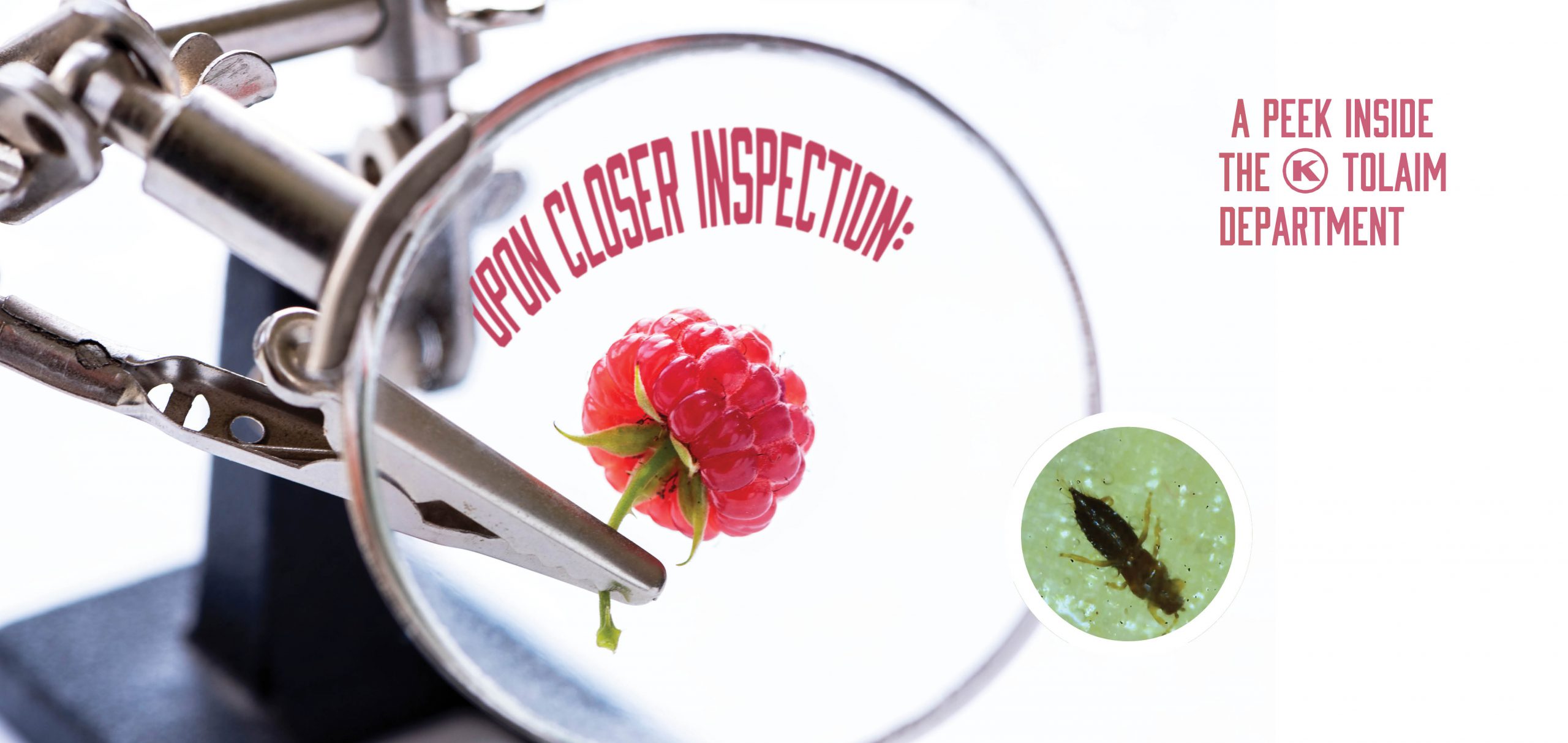The OK recently received a request from one of our certified companies in Switzerland – a manufacturer of muesli bars – to approve freeze-dried raspberry pieces for one of their products. The manufacturer of the raspberry pieces, located in Poland, did not have a valid kosher certificate, so the muesli bar company asked us to conduct an inspection to determine whether the raspberry pieces could be approved.
In his inspection report, the visiting rabbi noted a couple of concerns. “The products are not checked for tolaim [insect infestation] – not even a cursory inspection during the production process.” He added as a sidenote: “I’ve seen more immaculate facilities in Poland.”
After reviewing the report, the OK Executive Kashrus Vaad determined that several samples of the raspberry pieces needed to be inspected for tolaim. The consumption of even a single insect is forbidden by the Torah, and bug-prone products require close scrutiny. The manufacturer duly shipped several samples to OK Headquarters, where they were checked by our in-house tolaim experts. The results were worse than we anticipated; all of the samples were found to be infested with thrips – tiny winged insects, about 1mm in length. The moisture content of the product (which can be a mitigating factor when evaluating tolaim issues) was less than 5%.
The OK Tolaim Committee convened and sought the advice of our Posek, a world-renowned expert on the topic. The Rav concluded: “After seeing the pictures of the insects it’s very evident that the process is not doing anything to eliminate or disintegrate the bugs…. I would be very hesitant to certify bug prone products.”
We carried the news to our Swiss company, expecting them to react with dismay. But they were grateful for being made aware of the issue. “Thank you for the feedback, even if it is not positive,” they wrote. “Apart from the Kosher status, we do not want any raw materials with thrips…We will not be sourcing any raw materials from [this supplier].”
Kashrus and quality do not always go hand in hand. But in this particular case, we ended up doing our certified company a great service by identifying what for them was a quality issue, which may well have carried highly unsavory consequences for their brand.
The Torah tells us that when Moshe Rabbeinu sent spies to the land of Canaan, they were intimidated by its inhabitants: “In our eyes, we seemed like grasshoppers, and so we were in their eyes (Bamidbar 13:33)”. If the spies’ point was to illustrate how small they felt, why did they use grasshoppers as an example and not ants? The Kli Yakar provides a unique interpretation: When viewed from a distance they indeed looked (and felt) like ants, but upon closer inspection they appeared as grasshoppers.
The whole issue of tolaim might seem insignificant at first glance – a mild inconvenience to be swatted away. But it is bigger and more complex upon close examination. The OK is fortunate to have a committee of rabbis who specialize in this enigmatic field. More broadly, this episode is a reminder for all involved in kashrus that our work is never small or insignificant in the eyes of the companies and consumers who rely on us.


 EN
EN  ZH
ZH  KR
KR  BR
BR  ES
ES  IN
IN  IL
IL 




